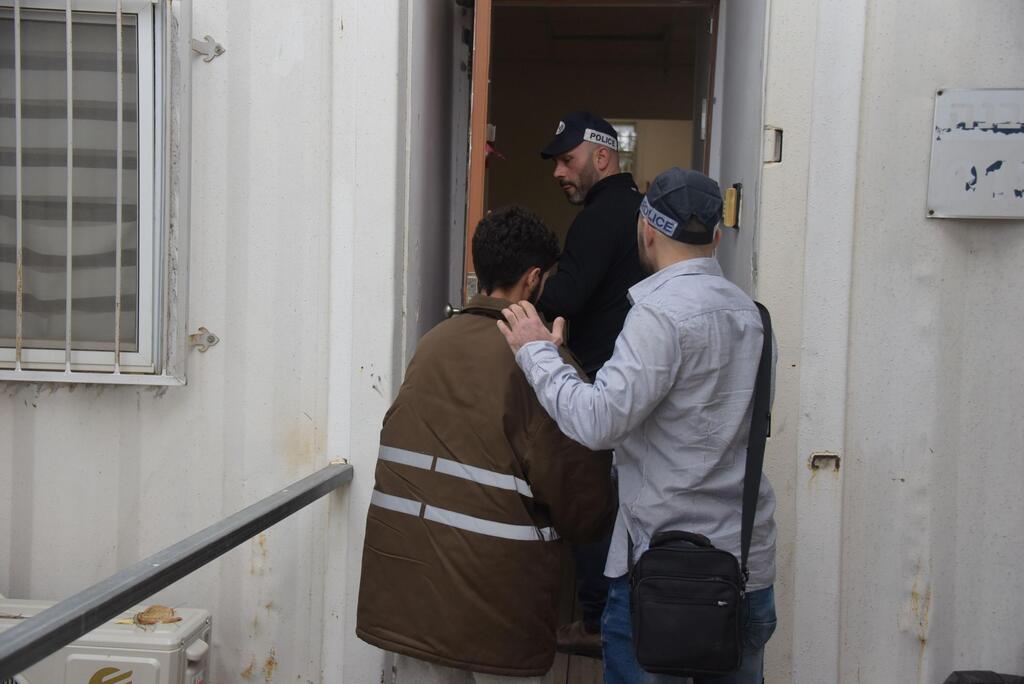Getting your Trinity Audio player ready...
Although Hezbollah spent the last few years focusing on its "plan to conquer the Galilee," the terror organization had also been planning a similar attack on the eastern sector of Israel's northern border.
While fighting continues in southern Lebanon, the IDF is also operating in Syria to neutralize the threat in the Golan Heights, known as the Golan File.
On October 9, the IDF eliminated Golan File member Adham Jahata in an airstrike. This terrorist operative had passed intelligence from the Syrian regime and Syrian frontlines to Hezbollah, enabling the Lebanese terror group to act against Israel through the Golan. His assassination adds to a series of countermeasures carried out by the IDF since the unit was first exposed in the winter of 2019, shortly after its formation.
How is a terrorist organization created?
Like most terror groups, the Golan File began as an idea: to establish an elite force that would plan and execute terror activities against Israeli civilians through the Syrian border. The unit was intended to serve as an intelligence-gathering branch, avoiding detection by the IDF, and launching attacks when ready.
IDF strikes Golan File positions in Syria
(Video: IDF Spokesperson's Unit)
The current leader of the Golan File is Ali Musa Abbas Daqduq, also known by the call sign Abu Hussein Sajed. He was chosen due to his extensive history with Hezbollah. In addition to supporting attacks from Lebanon on Israel in the 2000s, he trained Hezbollah’s elite Radwan Force. Later, he was sent to Iraq by the organization to build a terror network targeting U.S. forces.
In the summer of 2018, Hezbollah noticeably shifted its operations in the Golan Heights, turning the idea into reality. A covert unit was established, with constant operational readiness to strike Israel at a moment’s notice. Hezbollah accomplished this using existing terror cells in southern Syria, undetected by the Syrian regime.
However, the unit’s secrecy did not last long. Israeli intelligence quickly identified the threat and revealed its existence to the Israeli public and the wider world in March 2019.
A look inside the operation
Over the years, the IDF continued to gather intelligence, closely monitoring and combating the threat in secret. The Golan File resurfaced in the headlines in January 2023 when IDF forces captured Ghaith Abdullah, a Syrian resident and operative of the unit, while he crossed into Israel.
During interrogation, Abdullah confessed to his involvement and identified three other operatives: Maan Al-Hamad, Abu Jud and Abu Hassan Al-Asha, the unit's Syrian recruiter known by the call sign Abu Ali. He detailed his recruitment process and the mechanics of how Syrian collaborators were activated.
Hezbollah’s recruitment of local supporters relies on two main strategies: identifying Syrians with a history of anti-Israel terrorism and exploiting the poor living conditions in Syria by offering financial incentives in exchange for intelligence on IDF activities.
Operation Cash Cab
"At the start of the war in October, we received reports that the Golan File had begun to mobilize," recalled one IDF intelligence officer. "Prior to October, they had been preparing. That day, they received the order to act."
4 View gallery


IDF strikes vehicle carrying four Golan File terrorists as part of Operation Cash Cab
In those first hours of uncertainty, the IDF quickly recognized the gravity of the situation and began formulating plans to foil the terrorist plot. For months, they conducted close surveillance on suspects, culminating in a decisive operation in December.
"We identified a Syrian man suspected of collaborating with Hezbollah in Quneitra, southern Syria," the officer recalled. "When we learned Lebanese operatives were joining him at the Syrian front, we knew this was no innocent meeting and acted to thwart the threat."
IDF surveillance tracked the Syrian collaborator's yellow taxi, and once all four terrorists—three Lebanese operatives and one Syrian—were confirmed to be inside, the vehicle was struck from the air. The operation, which killed Abu Al-Julan, a Syrian operative, and three Lebanese operatives—Abu Tarab, Abbas and Jawad Daqduq, the son of the unit's commander—was dubbed Operation Cash Cab.
Intelligence officials described the strike as "the hardest blow to the Golan File since its inception." According to sources, the message remains clear: any enemy threatening Israel’s security, whether in Lebanon, Syria or elsewhere, will be eliminated by the IDF.
Get the Ynetnews app on your smartphone:








